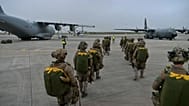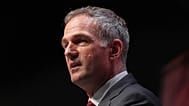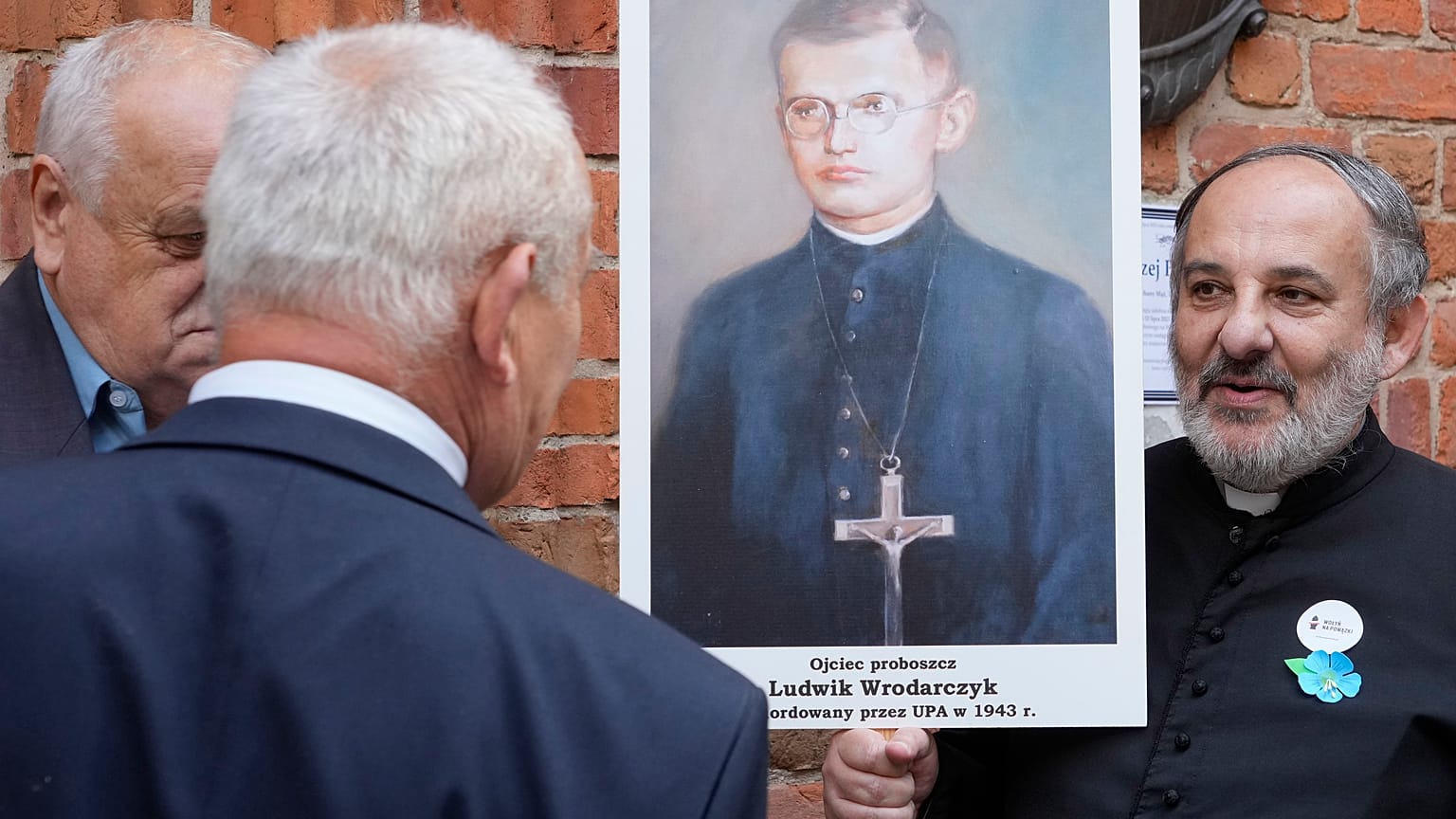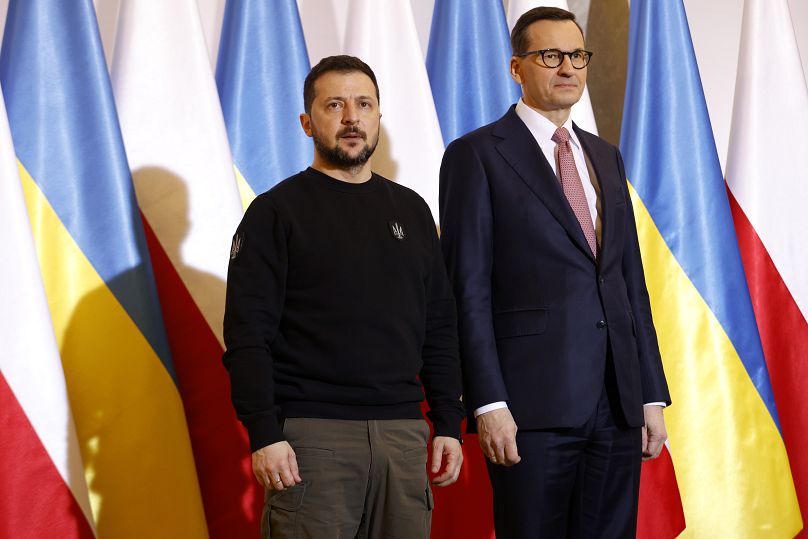Poland is marking the 80th anniversary of massacres committed by Ukrainian nationalists during World War II, possibly endangering its relationship with Kyiv and fuelling Russian propaganda.
The invasion of Ukraine has inflamed some of the most contentious historical issues on a continent that has been shaped by war for much of its history.
 ADVERTISEMENT
ADVERTISEMENT
 ADVERTISEMENT
ADVERTISEMENT
And even Poland, perhaps Ukraine’s staunchest ally since the launch of the full-scale invasion of the country, has not been spared.
On Friday, Poland’s Prime Minister Mateusz Morawiecki and Catholic church leaders launched a series of observances to honour the victims of World War II era massacres that saw of tens of thousands of Poles murdered by Ukrainian nationalists.
“We can say that for many years this has been an unhealed wound in Polish-Ukrainian relations," Rafal Bochenek, the spokesperson for Poland's ruling Law and Justice party.
“We would expect truth to be told and things to be called by their proper name," Bochenek said.
The killings took place in Volhynia and other regions of what was then eastern Poland, an area controlled by Nazi Germany that was absorbed into the Soviet Union before becoming part of western Ukraine.
The renewed attention to the incident has strained the otherwise airtight relations between the neighbouring nations.
Poland insists that the 1943-44 massacre of some 100,000 Poles by Ukrainian nationalists was genocide, and many Poles still harbour grudges for family members who were brutally killed in the massacres.
Entire villages were burned down and all their inhabitants killed by nationalists and their helpers who sought to establish an independent Ukrainian state. Some 15,000 Ukrainians, meanwhile, lost their lives in retaliatory killings.
The latest spat began last week when Poland’s foreign ministry spokesman, Lukasz Jasina, said that on this 80th anniversary of the events, Poland was expecting an apology from Ukraine and President Volodymyr Zelenskyy for the 1943-44 massacres.
Ukraine’s ambassador to Poland, Vasyl Zvarych, reacted by saying that any suggestions of what Kyiv or Zelenskyy should do were “unacceptable and unfortunate.”
He later toned down the statement to say Ukraine was “open to dialogue” about history and honored the memory of the victims. He stressed the value of current cooperation by saying the two neighbouring nations are ”stronger together.”
Polish Prime Minister Mateusz Morawiecki travelled to Ukraine early on Friday to visit the scenes of various massacres, including where the entire villages of Ostrowki and Puzniki were wiped out by units of Ukraine's nationalist forces.
He put up commemorative crosses there and visited local cemeteries where some of the victims were buried. Not all burial sites are known.
“I will not rest until the last victim of that terrible Volhynia Massacre is found and buried with respect," Morawiecki said.
The leader of Poland's Roman Catholic Church, Archbishop Stanislaw Gadecki, and the Major Archbishop Sviatoslav Shevchuk of the Ukrainian Greek Catholic Church held a joint reconciliation religious service Friday in Warsaw.
The days of observances will culminate on Tuesday, marking the 80th anniversary of the incidents.
Poland has long pursued Kyiv’s permission to search for burial sites so that Polish victims might be exhumed, identified and commemorated.
Some of the Ukrainian nationalist leaders who were responsible for instigating the massacres are lauded in Ukraine for fighting for the nation's independence during World War II, leading to strains in relations with Poland. But Ukraine's authorities recently signalled a more open approach to Poland's expectations.
Poland’s leaders have insisted that bringing the full truth into the open will strengthen bilateral relations with Ukraine and neutralise vulnerabilities that could be exploited by third countries seeking to undermine these ties.
“We must be aware, Poles and Ukrainians, that without the full clarification and full record of the Volhynia crimes, Russia will always be using this card to drive a wedge between Poles and Ukrainians," Morawiecki said.















